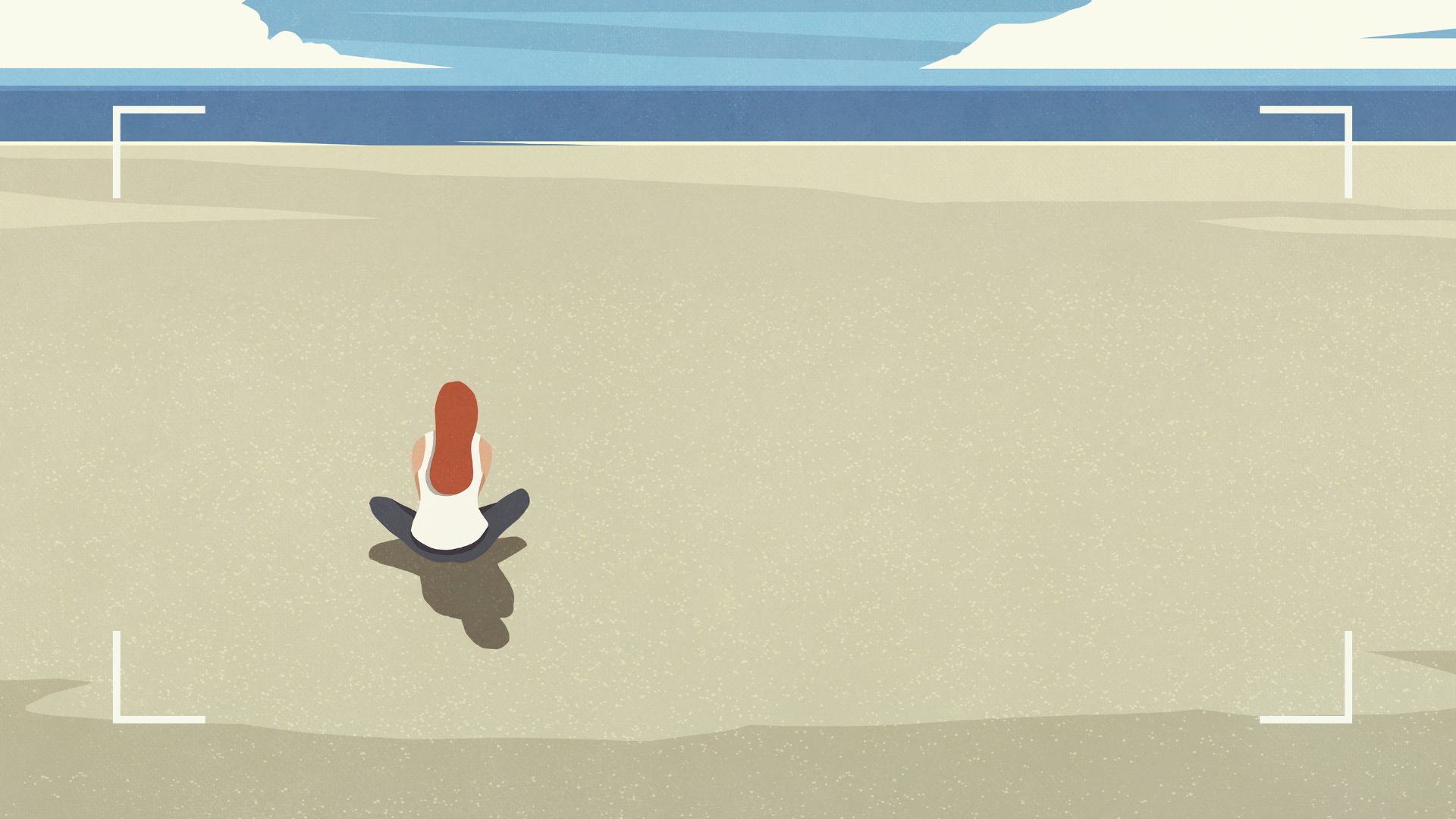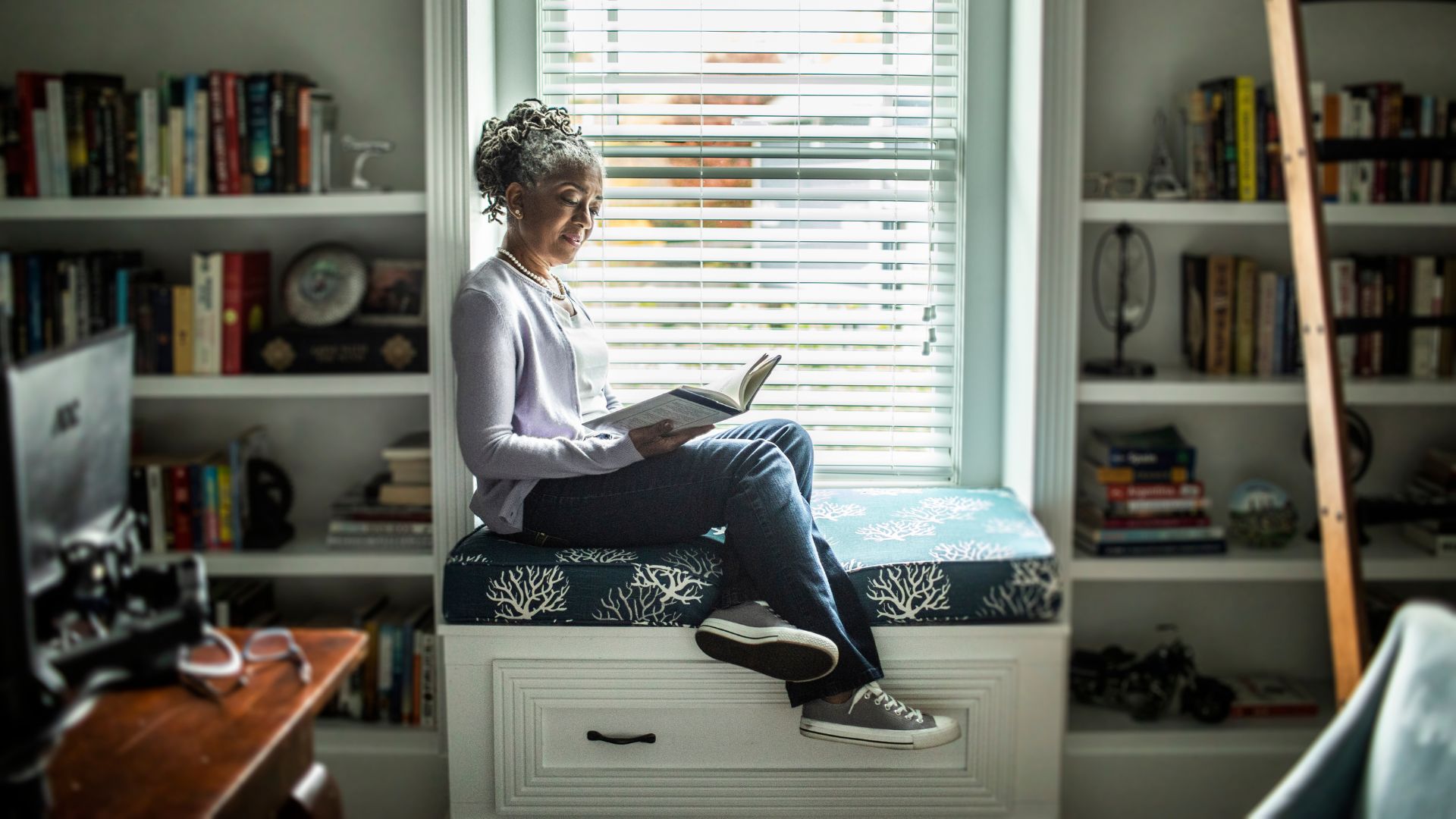Why you need these 7 types of rest to feel fully recharged
Getting enough sleep but still feeling fatigued? It's time to rest. Here are the 7 types of rest we all need


We all know downtime is important, but did you know there are seven types of rest we need to recharge ourselves fully? Knowing what these types of rest are and how to ensure we’re getting them is vital to feeling focused and energized.
Getting enough sleep is vital for keeping ourselves feeling healthy and happy, but sleep isn’t the only thing we need to find rest. Sleep and rest are two different things, with the former being a complex set of processes we need to be unconscious to achieve, and rest being something we can achieve while awake and moving.
In the same way that we try to understand how to sleep better, and recognize how much sleep we need to improve our energy levels during the day, we need to understand how to rest better, argues Dr Saundra Dalton-Smith, author of Sacred Rest: Recover Your Life, Renew Your Energy, Restore Your Sanity. In her book, Dr Dalton-Smith presents the idea that there are seven types of rest that everyone needs in order to live a balanced and energized life. So if you're feeling constantly fatigued, it's integral to identify and address your 'rest deficits.'
Find out the seven types of rest here, plus some tips on how to integrate them into your day-to-day, according to certified sleep experts.
Why do we need 7 types of rest?
The framework for the seven types of rest comes from Dr Dalton-Smith's landmark book and research and is widely supported by sleep and rest experts across the globe. The energy we use daily can be grouped into 7 categories, so we need 7 types of equal rest to recover. “Rest is essential for overall health and well-being," explains Nicole Eichelberger, a BSM-certified sleep expert. "However, rest doesn't just refer to getting enough sleep or taking a break from work. There are different types of rest the human body and mind need to function optimally."
Matching the energies they help us recover from, the seven types of rest are:
- Physical
- Mental
- Emotional
- Sensory
- Creative
- Social
- Spiritual
The one we need most will depend on which areas our energy is weighted, so listening to our bodies and paying attention to how we feel is essential for us to determine the type of rest we need to maintain our energy levels.
Sign up for the woman&home newsletter
Sign up to our free daily email for the latest royal and entertainment news, interesting opinion, expert advice on styling and beauty trends, and no-nonsense guides to the health and wellness questions you want answered.

What are the seven types of rest?
1. Physical rest
Physical rest is the most obvious form of rest and it involves taking a break from physical activity or exercise. Whether it's your workout routine or overly-active daily lifestyle, getting enough bodily rest is essential for your muscles to recover and repair and your mind to reset, according to research by the University of Waikato.
You'll be able to tell you need some R and R if you feel physically exhausted, have muscle soreness, or have trouble falling asleep at night. Even if you don’t exert yourself too much, you still need to give your body a break once in a while.
But it can also be one of the hardest forms of rest to take, with many of us used to our routines or needing to be on our feet for hours during the day. As Dr Maja Schaedel, a clinical psychologist and sleep specialist, explains, sometimes our own resistance to physical rest stops us from getting enough. “If you are worried that you might not physically be able to rest, then it is worth asking yourself what would happen if you just stopped."
2. Mental rest
Mental rest involves taking a break from mental activity, such as work or studying. It's something we're all encouraged to do but many of us don't do enough of it. This type of rest allows your brain to recharge and helps you to avoid burnout and mental exhaustion. If you feel overwhelmed, have difficulty concentrating or making decisions, or experience racing thoughts, you may need more mental rest.
“Doing a 10-minute mindfulness technique, and focusing on your breathing, can be a really good way to gauge how easy you find it to step away from your busy mind,” says Dr Schaedel, who is also the founder of The Good Sleep Clinic.
3. Emotional rest
Emotional rest is all about stepping away from the pressures of everyday life and your responsibilities, even for just a couple of hours. To get emotional rest we need to take a break from emotional stressors, such as dealing with difficult people or situations. This could be problems in your work, personal, or family life, and this type of rest allows you to process your emotions, respond to situations better, and reduce feelings of anxiety or overwhelm.
Much like physical rest, Dr Schaedal says that we tend to avoid emotional rest for fear of what could happen when we do. “In our search for rest we need to ask ourselves what is getting in the way,” she says. “We can avoid any moments of space or peace because it's in these moments where difficult feelings arise. The problem is, you can't avoid them forever without this impacting negatively on your life in some other way. For many, the answer is about allowing and noticing the difficult feelings to show up and treating them with compassion and curiosity. By acknowledging and accepting our difficult feelings, we stop trying to fight them and prevent them from being there, and with this, we find a certain kind of rest.”

4. Sensory rest
Especially relevant to how we live our lives today is sensory rest. This involves taking a break from sensory stimulation, such as loud noises, bright lights, and constant screen time.
This type of rest can help reduce sensory overload, promote relaxation, and help you avoid habitual burnout. We might not always realize we need this type of rest, but if you feel overstimulated or easily distracted by noise, light, or technology, you may need more sensory rest.
In the evening, it's something we should try and prioritize. Although it can be difficult to put down your phone or switch off the TV an hour before you're looking to go to sleep, studies by Columbia University show that doing so can dramatically improve your sleep quality, including how fast you fall asleep.
5. Creative rest
You might not think anyone needs a break from creativity - in fact, many of us could do with the opportunity to have more of it - but even being creative can cause exhaustion. Especially if it's enforced creativity, such as for work, it can be mentally and emotionally draining.
Creative rest involves taking a break from such creative work or activities. It allows you to relax your mind, not only giving your nervous system a break from the stress but also helping to spark new ideas and inspiration. Often, those who feel stuck in a rut need creative rest.
6. Social rest
Social rest involves taking a break from social interactions and can help you recharge your batteries. If you feel drained from too much social interaction or overwhelmed by social obligations, you may need to prioritize it.
Some people will also need this rest more than others. As Dr Schaedel notes, “This type of rest can be especially helpful for introverts or those who have been in a lot of social situations in a short period of time.”

7. Spiritual rest
As the name suggests, spiritual rest involves taking a break from religious or spiritual practices. This type of rest can help you connect with your inner self and find a sense of peace and purpose. If you feel a sense of disconnection or lack of purpose in your life, you may need more spiritual rest.
Dr Schaedel says we may believe we shouldn’t take this type of rest, as it’s connected to our spirituality, which is surely a good thing, right? Of the seven types of rest, this one is probably the one we struggle with the most. “If you are finding it difficult to allow yourself this kind of rest it’s worth asking yourself these questions: What would happen if I was to rest? What am I worried about happening if I was to rest?", and working through these issues.
What is the best form of rest?
There is no one form of rest we need more than another as we all need a little of each of the seven types of rest to live happily and be productive. However, some of us will need one type of rest more than others at any point. For example, you may feel totally physically rested if the holiday season has just ended, but you may feel that you haven't had enough social or mental rest. In this case, it'll be better to prioritize these.
As Eichelberger, who is also a sleep consultant for Mattressive, says, "All forms of rest are essential, and neglecting any one of them can have negative consequences on our physical, mental, emotional, and spiritual wellbeing. Where possible, prioritizing rest and finding a balance between different types of rest is crucial for maintaining overall health and wellness."
But it's all personal, she reminds us, and the type of rest one person needs may be totally different from another person with a similar lifestyle. "It's important to listen to your body and give it the type of rest it needs at any given time.”
Eichelberger agrees. "The best form of rest depends on the individual's needs and preferences," she says, “Each type of rest serves a specific purpose and can be beneficial in different ways. Therefore, it is essential to understand what type of rest is needed based on the situation and individual's requirements.”
How to work out the type of rest you need
To work out the type of rest you need most, you can start by paying attention to the signals your body is sending you. As noted, each type of rest is the recovery from the equivalent type of energy. So, Dr Schaedel says, “When we think about rest, it's important to consider what we need rest from. For example, many people talk to me about how they struggle to find 'inner peace', which is a type of restlessness and lack of rest from the busyness of our minds."
Understanding the type of rest we need is the first step then we need to focus on building that rest into our lives. “Once you have identified the type of rest you need most, you can start incorporating activities that promote that type of rest into your daily routine,” says Eichelberger. “It's important to listen to your body and give it the rest it needs to function optimally.”
Samantha is a freelance writer from Yorkshire, writing about health and wellbeing for Woman & Home, Reader's Digest, Giddy, and Good Housekeeping. For the past 15 years, she's combined her personal experiences with reporting, to write about menopause, fitness, sleep, and healthy eating. She also writes about travel and food and drink for The Independent, The Good food Guide, Lonely Planet, Frommer's, and more.
-
 I’ve been writing about the royals for years - here’s what I predict Kate Middleton will wear at Easter (and what I wish she’d wear instead)
I’ve been writing about the royals for years - here’s what I predict Kate Middleton will wear at Easter (and what I wish she’d wear instead)All eyes will be on the Princess of Wales if she attends the Royal Family's Easter Sunday church service for the first time since 2023.
By Emma Shacklock
-
 I swapped my regular breakfast for 'gut-friendly' kefir - these are the real benefits of the drink
I swapped my regular breakfast for 'gut-friendly' kefir - these are the real benefits of the drinkYou might have heard of the benefits of drinking kefir, but are they really all they're cracked up to be? Minreet Kaur finds out.
By Minreet Kaur